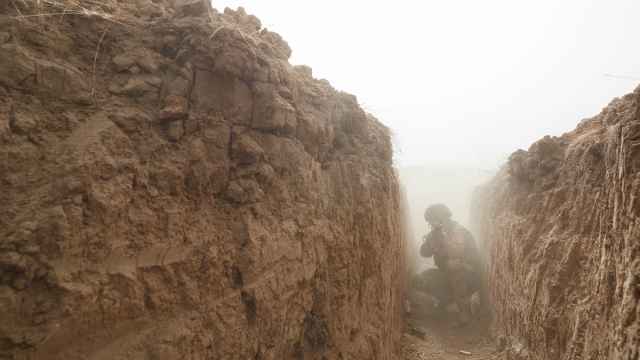Russia's new national payment card system, created by the Central Bank this year to curb Russia's reliance on Western systems Visa and MasterCard, on Saturday announced the name of its first bank cards: "Mir."
The brand name, which in Russian means both "the world" and "peace," was selected through a nationwide online vote on design entries submitted by companies and individuals across Russia.
The winning brand name and logo were created by a designer from the republic of Udmurtia, about 1,000 kilometers east of Moscow, who entered the contest under the name "lentachka!" The logo — which includes cartoon-like wings and an image of the Earth — will adorn crimson bank cards serviced by the national payment card system and set for release later this year.
Russian voters were clearly keen for wings: The runner-up in the competition was an entry from a user named Tatyana in the Samara region that depicted a stylized bird of prey sitting on the word "Sokol," which is Russian for hawk.
The creation of a domestic payment card system leapt to the top of the national agenda last year when, shortly after Russia annexed Crimea from Ukraine, U.S. sanctions forced Visa and MasterCard to stop servicing two Russian banks.
Officials saw the cutoffs as a national security risk; Visa and MasterCard at that time processed about 90 percent of all payments in Russia. President Vladimir Putin promptly called for the creation of a national payment card system that would free Russia from the risk of service denials in the future.
Legislation to that effect was passed, and the new system came online earlier this year. Visa and MasterCard are now legally required to process Russian payments through the new system.
A Message from The Moscow Times:
Dear readers,
We are facing unprecedented challenges. Russia's Prosecutor General's Office has designated The Moscow Times as an "undesirable" organization, criminalizing our work and putting our staff at risk of prosecution. This follows our earlier unjust labeling as a "foreign agent."
These actions are direct attempts to silence independent journalism in Russia. The authorities claim our work "discredits the decisions of the Russian leadership." We see things differently: we strive to provide accurate, unbiased reporting on Russia.
We, the journalists of The Moscow Times, refuse to be silenced. But to continue our work, we need your help.
Your support, no matter how small, makes a world of difference. If you can, please support us monthly starting from just $2. It's quick to set up, and every contribution makes a significant impact.
By supporting The Moscow Times, you're defending open, independent journalism in the face of repression. Thank you for standing with us.
Remind me later.






